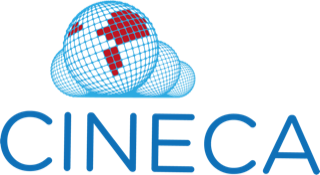Date: 15 April 2021
Time: 3:00 PM GMT / 5:00 PM CEST
Material: Slides Ethics/ELSI considerations - From FAIR to fair data sharing
Location: Online
Contact: Mamana Mbiyavanga & Marta Lloret Llinares
Overview
The CINECA "How FAIR are you" webinar series continues with a presentation by Dr Melanie Goisauf, from BBMRI-ERIC.
The FAIR principles – standing for Findability, Accessibility, Interoperability, and Reusability – have become the guiding principles for the wider sharing of research data in the life sciences. While FAIR provides guidance for the management of data as well as tools and workflows, the institutional conditions and organizational challenges associated with data sharing need to be taken into account to ensure responsible and fair data practices. This requires considering the context of legal requirements, for instance the principle of fairness and transparency in GDPR, expectations of research participants/data subjects, societal aspects and the “ethics work” that is an integral part of data flows, as well as fairness, equity and benefit sharing within transnational collaborations, which is of utmost importance. This webinar will, from the perspective of ethical, legal and societal implications (ELSI), discuss this broader context of responsible and fair data sharing associated with FAIR.
The “How FAIR are you” webinar series and hackathon aim at increasing and facilitating the uptake of FAIR approaches into software, training materials and cohort data, to facilitate responsible and ethical data and resource sharing and implementation of federated applications for data analysis.
The CINECA webinar series aims to discuss ways to address common challenges and share best practices in the field of cohort data analysis, as well as distribute CINECA project results. All CINECA webinars include an audience Q&A session during which attendees can ask questions and make suggestions. Please note that all webinars are recorded and available for posterior viewing.
About the speaker
Dr Melanie Goisauf is a social scientist and Research Officer at the European research infrastructure for biobanking BBMRI-ERIC. She is also Lecturer at the Department of Science and Technology Studies at the University of Vienna. She studied Sociology at the University of Vienna and at Royal Holloway University of London, and completed the post-graduate programme „Sociology of Social Practice“ at the Institute for Advanced Studies (IHS) in Vienna. Melanie Goisauf holds a doctoral degree from the University of Vienna. Her dissertation was awarded the prize for best thesis in 2017 by the research network “Gender and Agency” of the University of Vienna. At BBMRI-ERIC, is involved in – also in a leading position – various H2020 projects (EUCAN-Connect, CINECA and EuCanImage) where she focusses on the ethical and societal implications in biobanking, data sharing and artificial intelligence (AI), as well as governance and stakeholder engagement. She is also leading the international Task Force Societal Issues at BBMRI-ERIC.
About CINECA
The CINECA (Common Infrastructure for National Cohorts in Europe, Canada, and Africa) project aims to develop a federated cloud enabled infrastructure to make population scale genomic and biomolecular data accessible across international borders, to accelerate research, and improve the health of individuals across continents. CINECA will leverage international investment in human cohort studies from Europe, Canada, and Africa to deliver a paradigm shift of federated research and clinical applications. The CINECA consortium will create one of the largest cross-continental implementations of human genetic and phenotypic data federation and interoperability with a focus on common (complex) disease, one of the world’s most significant health burdens. CINECA has assembled a virtual cohort of 1.4M individuals from population, longitudinal and disease studies. Federated analyses will deliver new scientific knowledge, harmonisation strategies and the necessary ELSI framework supporting data exchange across legal jurisdictions enabling federated analyses in the cloud. CINECA will provide a template to achieve virtual longitudinal and disease specific cohorts of millions of samples, to advance benefits to patients. It will leverage partner membership of standards and infrastructures like the Global Alliance for Global Health, BBMRI, ELIXIR, and EOSC driving the state of the art in standards development, technical implementation and FAIR data.


